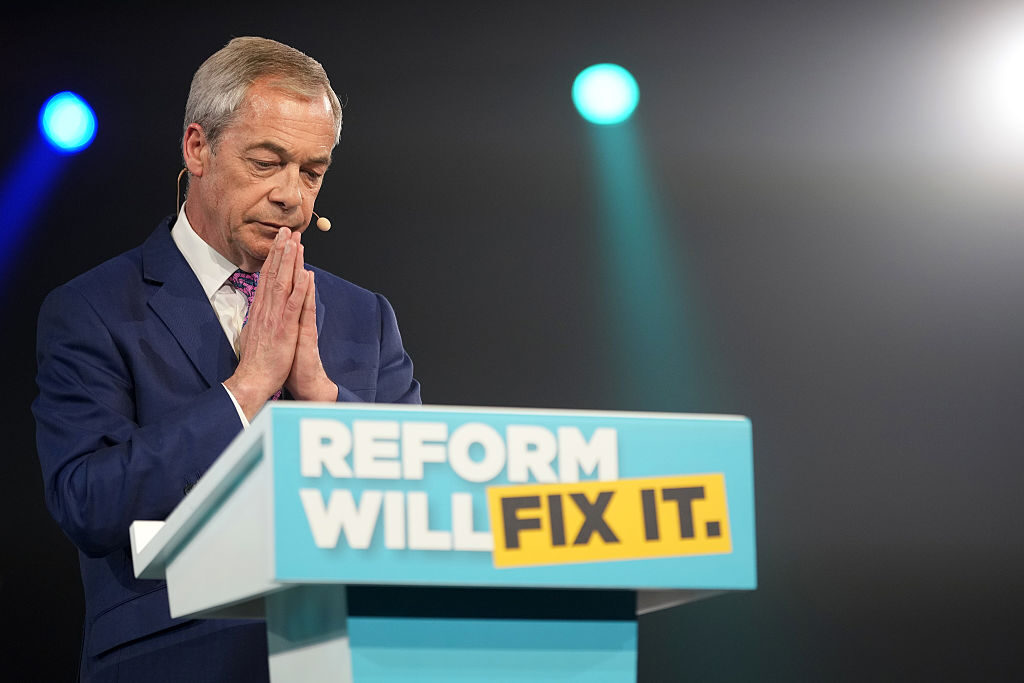The benefit of the first-past-the-post electoral system, its supporters argue, is that it provides parties with strong majorities in government. However, the sustainability of that argument may soon come into question. Britain currently has three parties polling between 20-25%, with the Liberal Democrats and Greens combining to form another bloc on roughly the same amount.
The fractured nature of British politics means some harsh realities must be faced. The i reports that Conservative MPs are now urging an informal non-aggression pact with Reform UK ahead of the next general election. Their calls follow party leader Kemi Badenoch’s remarks last week encouraging Tory councillors to consider local coalitions with Reform where necessary to take control of councils, a stance that has reignited talk of a quiet understanding between the two parties.
Noting Nigel Farage’s stated ambition to destroy the Conservative Party, Badenoch has understandably dismissed any national pact. But her openness to local cooperation has emboldened MPs who argue that electoral reality may demand a more pragmatic approach. With Reform peeling off Right-wing voters in marginal seats, some Tories believe a tacit deal could be the only way to prevent Labour victories by default. Conservative MP Geoffrey Clifton-Brown went on record, telling the paper: “There’s no point going in and then both of us letting in a Liberal or Labour or a Green administration by competing with each other.”
Badenoch finds herself something of a victim of circumstance, presented with a fait accompli which may be beyond her power to refuse. As an insurgent party now polling consistently higher than the Conservatives — and occasionally higher than the governing party — Reform is in a startlingly strong position, and a non-aggression pact may owe as much to practicalities as principles: in some areas, a coalition may be the only way of keeping out the centre-left. In fact, given Labour’s unpopularity, it may be the only viable way of governing at all.
But this may not be a straightforward victory for Farage. Reform is thus far untainted by the realities of power; getting into government, even if limited to the local level, may dull the insurgent edge on which the party trades.
An example may be the aggressive tone Farage has taken on local councils. At the weekend, he told the BBC’s Laura Kuenssberg that “we probably need a DOGE for every single county council in England”, and that he did not “accept that it’s been very tough for county councils”.
While there can be no doubt that there is significant waste in local government, the reality is that the majority of spending in councils is statutory, often exacerbated by increased requirements and escalating duties placed on it by central government. Reform, however, has been submitting FOI requests to authorities on the amount of spending on DEI initiatives — a much better campaigning tool, if a less effective solution to the financial problems of local councils.
Bringing these issues to light may capitalise on understandable public frustration, but burdening Reform with power would expose the party to the same dilemmas which bedevil every elected official: the gulf between rhetoric and responsibility. Governing, even locally, demands more than outrage. By forcing Reform from protest to power, Badenoch may hope that the trade-offs, compromise, and need to prioritise within constraints Farage can no longer simply denounce will scuff the pristine image of a party yet to be tested in power.











Join the discussion
Join like minded readers that support our journalism by becoming a paid subscriber
To join the discussion in the comments, become a paid subscriber.
Join like minded readers that support our journalism, read unlimited articles and enjoy other subscriber-only benefits.
Subscribe